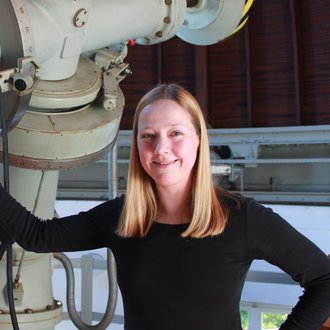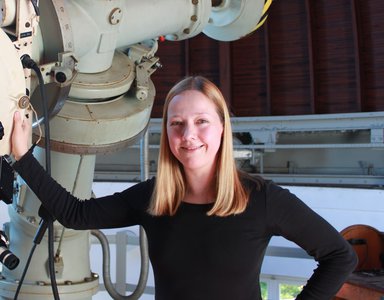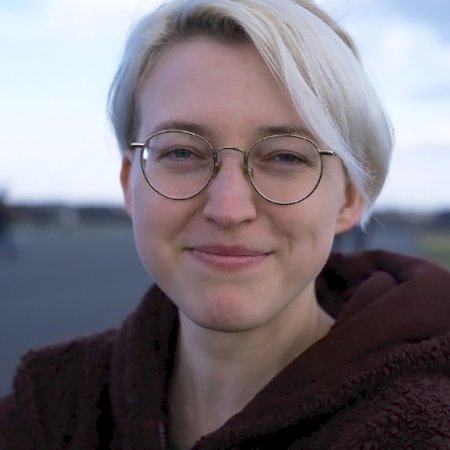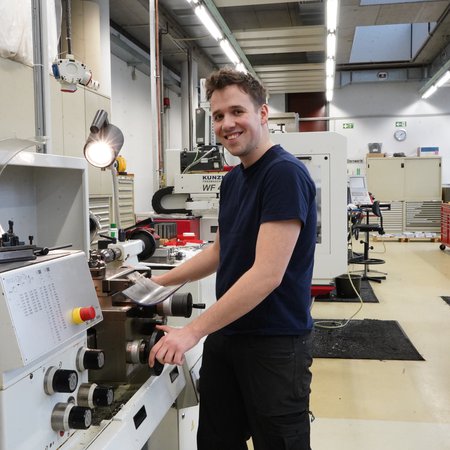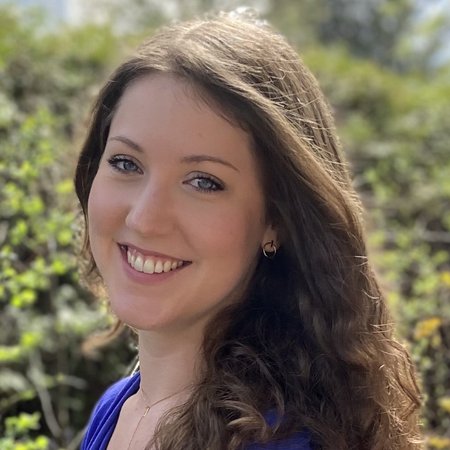New professor for Stellar Physics and Exoplanets
Prof. Dr. Katja Poppenhäger, expert on planets around other Suns, was successfully appointed as the head of the stellar physics and stellar activity section at the Leibniz Institute for Astrophysics Potsdam (AIP), and as joint professor at the University of Potsdam, Germany.
The study of planets around other stars is one of the most rapidly developing research fields in modern astronomy. Whether those planets might harbour life depends on the environment and stability of the physical conditions. Katja Poppenhäger’s focus is thereby on the study of the combined evolution of planets and their host stars. Her group conducts research into several aspects of star-exoplanet systems like stellar magnetic activity, exoplanetary atmospheres and the formation of protoplanetary disks by using observations from space telescopes at wavelengths from X-rays to the infrared, as well as ground-based data.
“Planets around other stars often experience space weather conditions very different from our rather tepid Earth. Especially in systems where the expected habitable zone is located close to the star, the magnetic activity of the star can influence the chances for life to develop. In such systems it is possible that the atmosphere of habitable-zone planets gets completely stripped away,” says Poppenhäger. “One question we would like to answer is how long the atmosphere of such a planet can survive.”
Her expertise fits in perfectly with the research area “Cosmic Magnetic Fields” at AIP, which is dedicated to the exploration of solar, stellar, and galactic magnetic fields, along with the underlying magnetohydrodynamic mechanisms that generate them. By appointing Katja Poppenhäger, the AIP is also strengthening its teaching activities in the educational programs at the University of Potsdam as part of the Bachelor and Master study programs in Physics and Astrophysics, and opening up opportunities for various collaborations.
Previously, Poppenhäger was a lecturer in astrophysics at Queen’s University Belfast, UK. She received her PhD from Hamburg University, Germany in 2011. In 2012 she moved to the Harvard-Smithsonian Center for Astrophysics, Cambridge, USA and was awarded a Sagan Fellowship 2013 to study exoplanet systems through high-energy observations, funded by NASA’s Exoplanet Exploration Program. Poppenhäger has successfully led observing programs with space telescopes like Chandra, Hubble and XMM-Newton, and is looking forward to exploring other worlds using the cutting-edge telescope facilities of the AIP.
Images
Professor Katja Poppenhäger
Big screen size [1000 x 779, 100 KB]
Original size [3064 x 2388, 600 KB]
